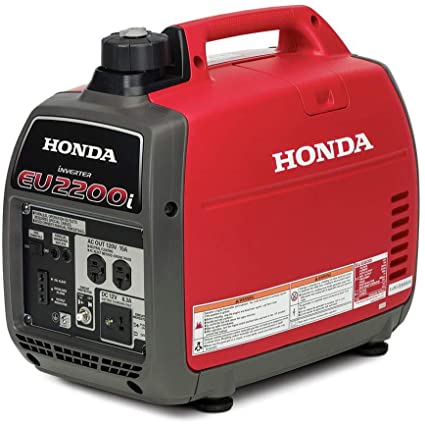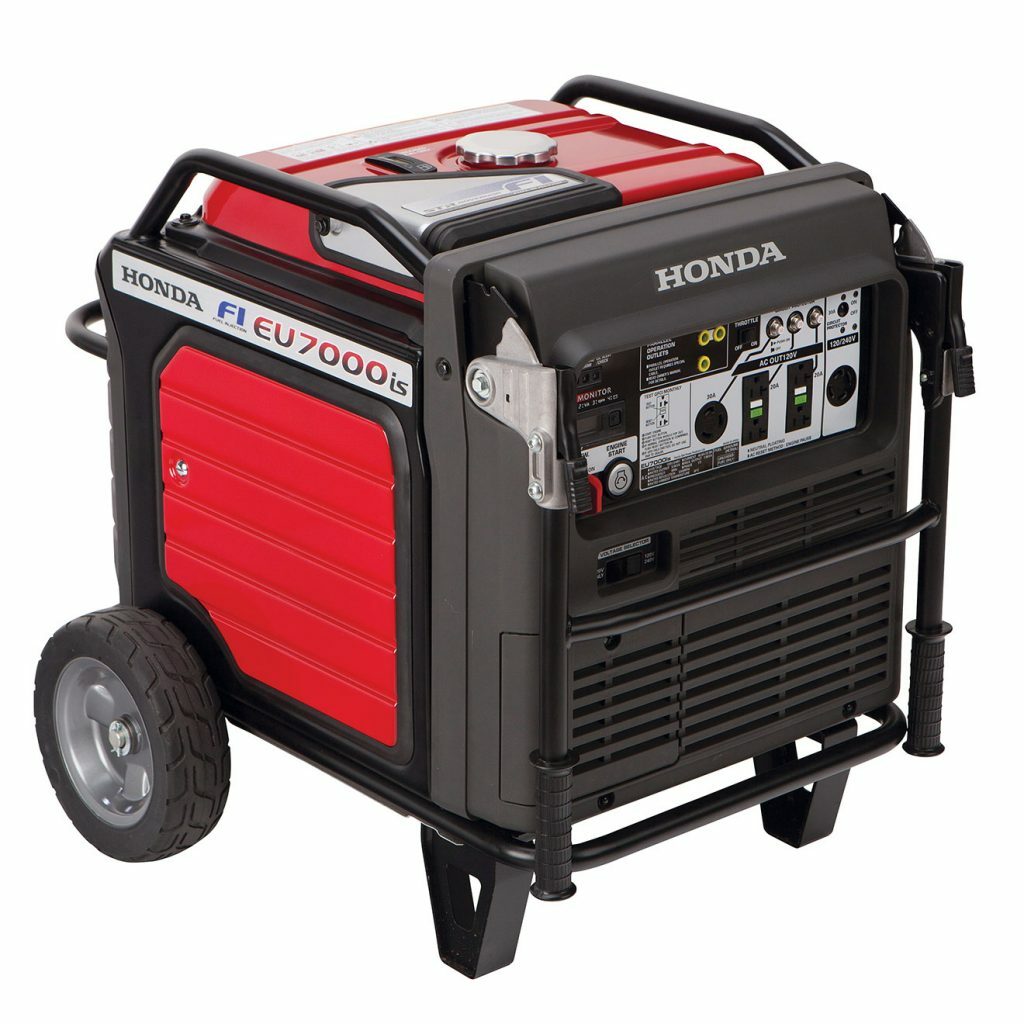Have you been searching for backup generators that you can use at home? You must have encountered heated debates between proponents of both Yamaha generator vs Honda. This discourse is most prominent because Yamaha and Honda are two high-flying companies that manufacture top backup generators. The entities are Japanese and are always churning out innovative designs.
Two significant components that affect the quality of a generator are the motor and design—two critical factors Yamaha and Honda have mastered. Let us now analyze how the generators of these companies compare with each other in various aspects.
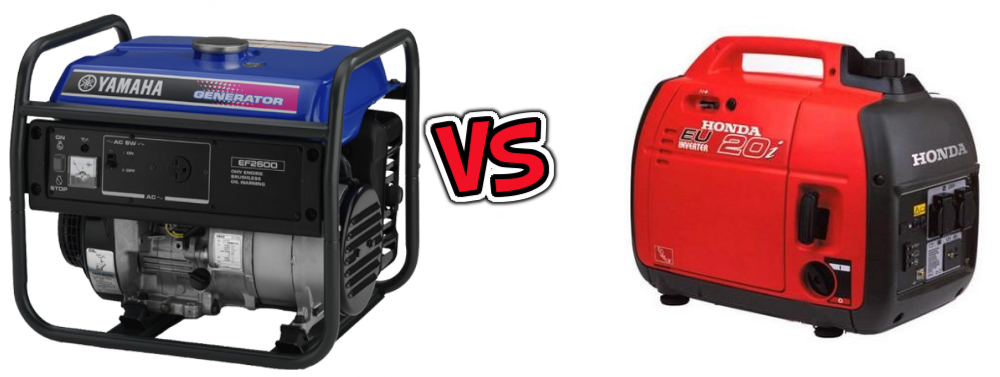
Yamaha Generator vs Honda Generator – General Comparisons
Making generalizations about the quality of the two brands is simple since their star products are inverter generators. We’ve outlined below how Yamaha and Honda’s generators match up against one another across different factors like performance.
Portability
In previous years, inverter generators used to be huge machines and you would struggle to move them around. However, many modern companies manufacture compact and portable inverter generators including Yamaha and Honda.
The EF1000iS is Yamaha’s smallest unit while the EDL11000SE is its biggest. The weight difference is quite significant with the smaller motor weighing 30 pounds while the mega-machine tipping the scales at 650 pounds.
Honda’s smaller models weigh only 2 or 3 pounds heavier than Yamaha’s and they produce about 2000-watts. However, the major differences are evident with the larger 7000-watt generators like the Honda EU7000iS. While the Yamaha EF200e weighs only 205 pounds, the Honda EU7000iS with a similar output is a hefty 260 pounds.
Since there are very few intersecting design ideas within the two companies, there is not much else we can compare the products besides their weight. Moreover, none of the brands have any standard design elements other than the U-shaped single-carry handle seen on almost all portable inverter generators.
Noise
Both Yamaha and Honda are known for manufacturing extremely quiet generators that hardly raise a fracas. While Yamaha’s EF2000iS functions at around 61dB, Honda’s EU2200i is better subdued and produces just over 53 dB.
Still, Yamaha wins brownie points here because a smaller load usually translates to a quiet machine. On the other hand, Honda’s generators produce the same noise levels regardless of their load. Therefore, Yamaha’s motors generally seem quieter than Honda’s even though Yamaha generators have more noise at higher load.
Maintenance and Monitoring
Honda is widely known for producing the most low-maintenance machines. Similarly, the company’s generators have straightforward designs with comparatively fewer interchangeable parts. Therefore, a machine with a few elements demands a low maintenance frequency.
The issue with a simple design is that monitoring the machine and conducting maintenance procedures won’t be uniform. While Yamaha’s generators might need more maintenance, you can expect a higher number of power outlets and better control panels on them.
Fuel Efficiency
While the maintenance schedule impacts a generator’s running costs, the significant difference is made through fuel consumption. Most people mistakenly compare the run times to figure out the fuel efficiency. However, you won’t know much about the consumption without comparing generator tank sizes along with the run time.
Smaller inverters from Yamaha have about one hour’s worth of extra running time over Honda generators. However, larger Honda generators have the same amount of extra time as Yamaha generators.
While both brands are known for their excellent fuel efficiency, comparing them is mostly dependent on a model-to-model basis.
Yamaha Generator vs Honda Generator – in-Depth Model Comparison
By now, we know the general differences between the generators manufactured by Yamaha and Honda. However, making generalizations is not always the right thing to do since each company has some weak models alongside other stronger units. Therefore, let us look at some of the most popular models by the two companies and see which brand is victorious.
Yamaha EF2000iS vs Honda EU2200i
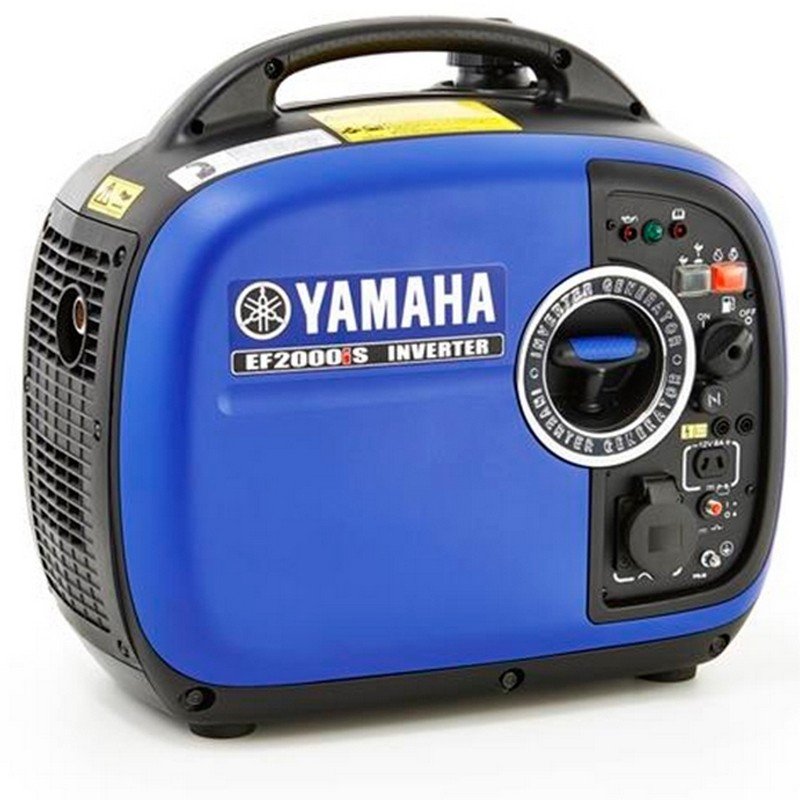 The EF2000iS and the EU2200i are the two most iconic generators produced by the respective companies. Both the generators have the same power range, i.e., 200-watts which makes them ideal competing backup generators.
The EF2000iS and the EU2200i are the two most iconic generators produced by the respective companies. Both the generators have the same power range, i.e., 200-watts which makes them ideal competing backup generators.
Run Time and Efficiency
Both generators can run for about 10 hours on a rated load, which is an impressive figure for such generators. While the products cannot compete in this aspect, they manage to beat similar machines on the market.
As mentioned earlier, the run time is not a direct indicator of fuel efficiency. Nevertheless, both generators have the same fuel tank capacity, run time, and are similarly efficient.
Weight and Size
The EU2200i is slightly smaller than the EF2000iS. However, the Honda generator is slightly heavier than the Yamaha. This is unexpected since both the tank and overall size should determine the weight of a product—but that isn’t the case with the Honda generator.
Both the generators are lightweight and compactly designed. Also, both machines have U-shaped handles and are highly portable. The design is pretty compact such that the machine can readily fit under the boot of your car. Therefore, both generators are perfect for camping and outdoor recreation.
Noise
Both motors are safe to use in public spaces because of their low-noise profile. At only 48 dB on a quarter load, the Honda generator is as quiet as a whisper while activated.
No matter how quiet the Yamaha generator is, the Honda is a clear winner. However, this is not a reason to completely disregard the EF2000iS because its noise levels are reasonably low.
Winner
Both generators are top of their class. Therefore, as is the general theme with the Yamaha generators vs Honda generator discourse, the product you like better is your subjective choice.
Yamaha EF7200DE vs Honda EU7000iat
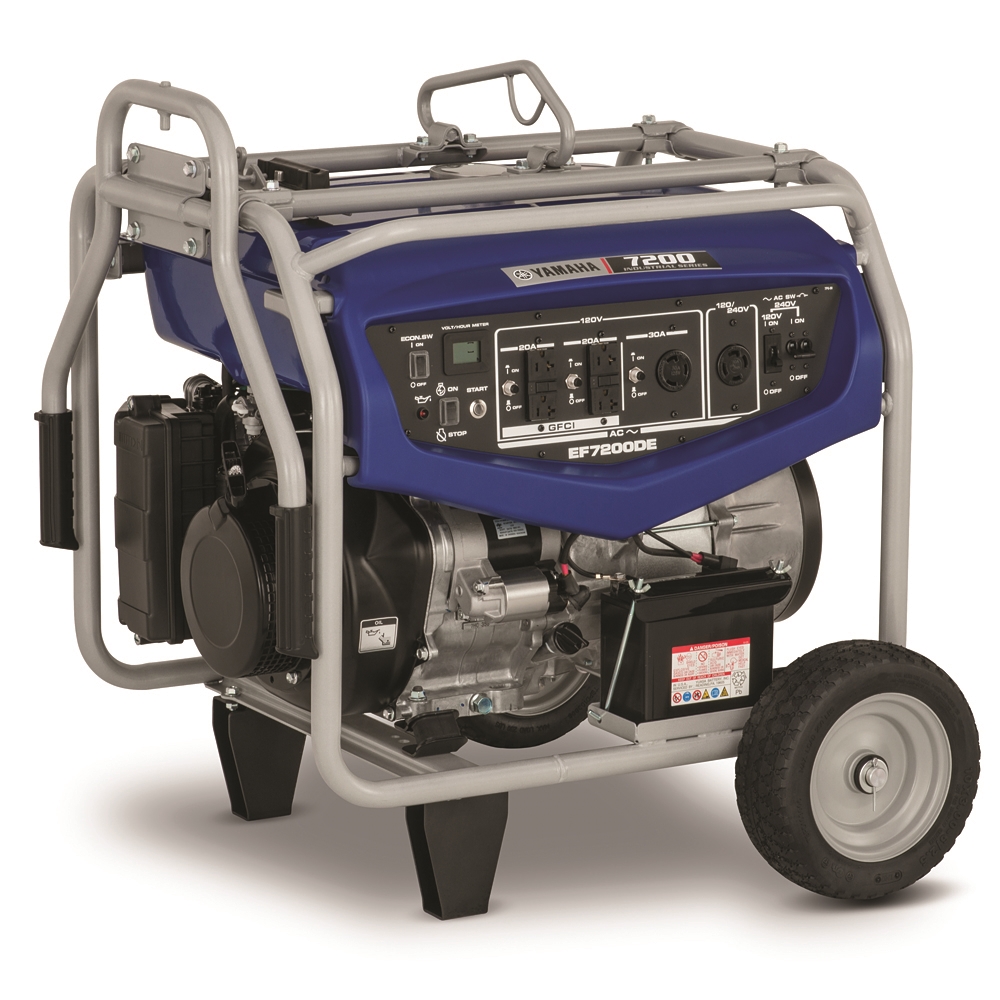 The only similarity between the Yamaha EF7200DE vs Honda EU7000iat is similar power output. Both the generators have about 7000 surge wattage. Otherwise, there are very few similarities between the two generators.
The only similarity between the Yamaha EF7200DE vs Honda EU7000iat is similar power output. Both the generators have about 7000 surge wattage. Otherwise, there are very few similarities between the two generators.
For the lack of other compatible models, we will compare Yamaha’s conventional portable generator with Honda’s inverter generator. Obviously, most of the differences will seem moot; however, the basic power crux remains the same between the generators.
Running Power
The surge power is the same in both generators. However, due to several reasons, Honda sustains a major blow because of a slight drop in running power. Yamaha wins in this category without significant competition.
Considering the tank size, the EF7200DE is extremely fuel-efficient. It has only a 1.8-gal higher tank capacity than the EU7000iat and has about 1.5 hours extra running time.
This is, however, not a reason to negate the running capacity and power of the Honda generator. It is solely due to the structural differences between the two that Honda’s inverter generator loses out on running power. However, when fairly compared to others with similar capacities, Honda is a clear winner.
Weight and Size
The Yamaha EF200DE is about 15 pounds lighter than the EU7000iat. This is pretty surprising if you consider the fact that the Honda generator is smaller and much more portable than the Yamaha.
The EU7000iat has foldable handles, a pair of wheels, and is easy to maneuver between obstacles. However, the EF2000E is not as simple to move around due to the ineffective bottom wheels. Even if the EF2000E is lighter than the EU7000iat, it doesn’t have a significant edge on portability.
Noise
As mentioned in the general comparison, Yamaha generators are quiet machines. Nevertheless, the Honda EU7000iat is much quieter than the Yamaha EF200DE.
The Sinewave technology employed in Honda machines subdues its motor to keep noise levels down. The generator is so quiet that it seems to produce similar noise levels as a 200-watt generator.
Therefore, the Yamaha generator is hardly suitable for recreational purposes in public spaces. Also, you shouldn’t consider it if you have neighbors close by.
Winner
Unlike other generator categories, this one has a clear winner. The Honda EU7000iat inverter generator decisively beats the Yamaha EF200DE conventional portable generator. The Honda generator is quieter, more compact, and easier to move around than the Yamaha generator.
To be fair, however, we must remember that the comparison between these two products is not on equal terms. Just because the Yamaha generator lost to the Honda doesn’t mean it’s not a good fit. In fact, it is the best product in its category and price range.
Final Words
The Yamaha generator vs Honda generator debate is pretty old and there are many negligible and conflicting differences between the two brands. Both companies excel at manufacturing high-quality and top-of-the-line generators. Therefore, the comparison between the two becomes subjective from one user to the next.
From our general and model-to-model analysis, it is safe to say that Honda manufactures better large generators. Yamaha, on the other hand, is the brand to choose if you’re looking for generators that take up smaller loads.
